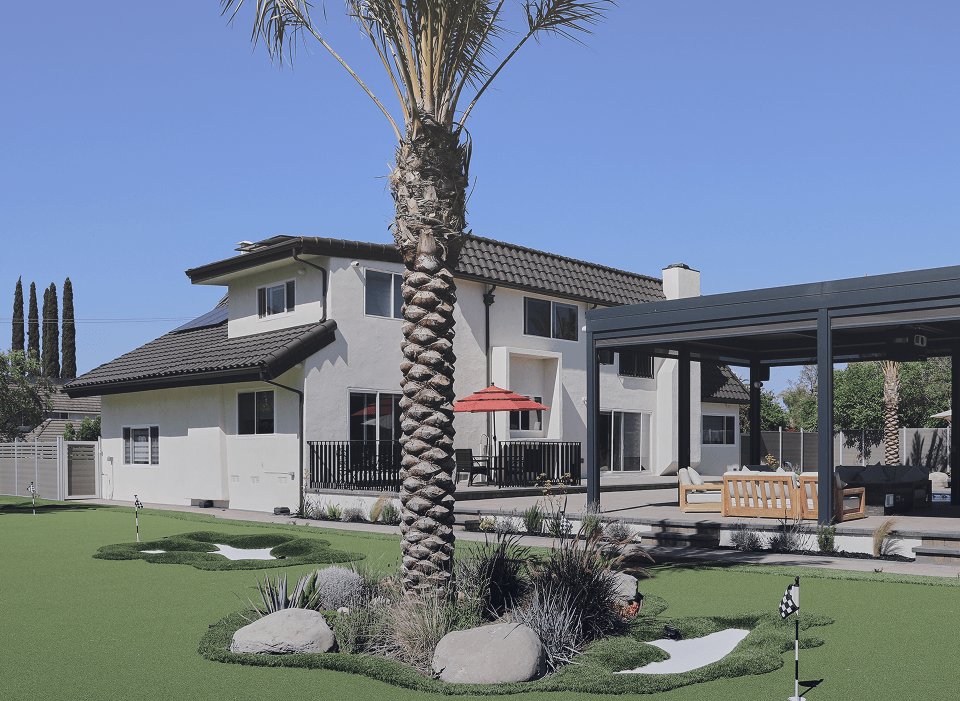
Alcohol Use Disorder: Alcohol Addiction Treatment
At The House of Life, we offer premium therapies for alcohol addiction.
Scroll
Effective alcohol addiction treatment begins with a crucial understanding: dependence is a medical condition, not a moral failure. At our center, we replace shame with science-backed solutions and isolation with compassionate professional support.
Recovery becomes possible when treatment addresses:
-
The root causes behind alcohol use
-
Personalized strategies for triggers and stress
-
A clear path to rebuild relationships and purpose
Our alcohol addiction treatment programs combine clinical expertise with individualized care, helping people rediscover strength through approaches tailored to their unique history and goals.
What Is Alcohol Use Disorder?
Alcohol Use Disorder (AUD) represents the medical classification for what many refer to as alcohol addiction or chronic alcoholism. This persistent brain condition involves diminished control over alcohol consumption, continuing despite negative impacts on one’s health, relationships, or professional life. AUD exists on a graduated scale rather than as a binary condition, with intensity levels ranging from mild to severe based on how many diagnostic markers from the DSM-5 (the standard manual for mental health diagnoses) a person exhibits.
This medical perspective serves a crucial purpose; it shifts discussions from moral judgments to recognizing AUD as a legitimate health condition that alters fundamental brain functions, including pleasure response, stress management, and impulse regulation. Acknowledging its biological basis represents the critical initial phase in pursuing and embracing scientifically validated treatment approaches.
Why Do People Abuse Alcohol?
Motivations for problematic alcohol consumption differ as widely as personal histories. Nobody intentionally develops dependency. The path typically starts inconspicuously, with alcohol initially fulfilling specific perceived needs. For numerous individuals, it serves as a social facilitator, reducing discomfort in gatherings or marking special occasions. Others turn to it as an unofficial coping mechanism, attempting to alleviate symptoms of mental health challenges such as persistent anxiety, mood disorders, or unresolved emotional pain.
With prolonged use, neurological adaptations occur. The brain restructures itself to accommodate regular alcohol intake, gradually transforming the original motivations for drinking. As the reward circuitry becomes fundamentally altered, consumption evolves from voluntary behavior to compulsive necessity. At this advanced stage, individuals often drink primarily to avoid withdrawal symptoms rather than to experience pleasure, establishing a self-perpetuating cycle of both physical reliance and psychological attachment that proves challenging to interrupt.

What Causes Alcohol Use Disorder?
Alcohol Use Disorder develops through multiple interconnected influences rather than any single cause. Effective treatment requires addressing this multifaceted origin.
Biological Factors: Family history plays a substantial role in AUD risk. Scientific studies demonstrate that individuals with first-degree relatives (parents or siblings) affected by alcohol problems face higher vulnerability. While genetic predisposition doesn’t determine destiny, it can influence how the body processes alcohol and the likelihood of developing dependence.
Social and Environmental Triggers: External circumstances significantly impact drinking patterns. Chronic stress, particularly early life adversity, creates substantial risk. Cultural attitudes that celebrate excessive drinking or minimize its dangers contribute to problematic use. Availability of alcohol and social dynamics, especially during formative years, frequently shape long-term drinking behaviors.
Mental Health Connections: Psychological factors create a complex relationship with alcohol. Many individuals with conditions like mood disorders, anxiety, or trauma histories may initially use alcohol to self-medicate symptoms. This often leads to a cyclical pattern where substance use and mental health challenges intensify each other, requiring integrated treatment approaches
Signs and Symptoms of Alcohol Addiction
Problematic drinking patterns reveal themselves through three core dimensions that worsen progressively:
- Behavioral Red Flags
- Loss of voluntary control (inability to stop after starting)
- Neglected obligations (declining work quality, missed deadlines)
- Social withdrawal (skipping events to drink alone)
- Denial of problems (justifying use despite clear harm)
- Time investment (planning activities around alcohol access)
- Physical Dependence Signals
- Tolerance buildup (needing 6+ drinks to feel effects)
- Withdrawal syndrome (shaking, nausea, or anxiety when sober)
- Compulsive cravings (intense urges triggered by stress/emotions)
- Health deterioration (weight changes, skin redness, liver pain)
- Cognitive & Emotional Symptoms
- Failed quit attempts (repeated broken promises to self/others)
- High-risk behaviors (drinking before driving/working)
- Mood disturbances (irritability when unable to drink)
- Memory blackouts (forgetting conversations or actions)
The severity increases when multiple symptoms persist simultaneously. Early recognition significantly improves treatment success rates, as chronic alcohol misuse leads to progressive neurological and physical damage. Professional assessment is recommended when several symptoms are present, particularly if combined with withdrawal experiences or failed moderation attempts.
When Do You Need Alcohol Addiction Treatment?
Recognizing the need for professional intervention occurs when alcohol consumption transitions from voluntary to obligatory, creating measurable negative consequences in your personal or professional life. If you identify with common warning signs of dependency or have unsuccessfully attempted to moderate your drinking independently, these are strong indicators that specialized alcohol use disorder treatment would be beneficial.
A common misconception suggests that individuals must reach their lowest point before treatment becomes appropriate. Contrary to this belief, addressing problematic drinking patterns through an alcohol recovery program at the earliest opportunity yields better outcomes and minimizes potential harm. Any situation where alcohol use generates personal discomfort, health complications, or concern from family and friends warrants a consultation with a healthcare provider about available treatment alternatives.
Types of Alcoholism Treatments
Contemporary treatment for Alcohol Use Disorder (AUD) has expanded well beyond traditional inpatient programs or group meetings. Today’s options encompass a diverse range of scientifically supported therapies, ensuring each person receives care tailored to their unique circumstances, preferences, and privacy needs, including innovative medication to help stop drinking when appropriate.
Effective recovery strategies typically combine two essential elements: psychotherapeutic interventions and pharmacological support, delivered through varying degrees of structured care.
Core Components: Therapy and Medication
Successful AUD treatment often merges these two approaches, which may be used independently or together:
Behavioral Therapy (Talk Therapy): The backbone of AUD treatment involves structured sessions with a licensed therapist—whether individually, in groups, or with family members. These sessions focus on uncovering the underlying triggers of alcohol misuse while equipping individuals with practical skills to handle stress, emotions, and triggers without relying on alcohol.
FDA-Approved Medications: Under medical supervision, certain non-habit-forming medications can significantly aid recovery. These drugs function in different ways—some diminish cravings, others block alcohol’s euphoric effects, and some alleviate prolonged withdrawal symptoms that might otherwise prompt relapse.
The Four Levels of Care Intensity
AUD treatment is highly individualized, with care levels adjusted based on severity and personal needs. The American Society of Addiction Medicine (ASAM) outlines four primary treatment intensities:
Standard Outpatient Care:
The least restrictive option, allowing individuals to attend therapy and medical appointments while maintaining their daily routines at home.
Intensive Outpatient (IOP) or Day Treatment (PHP):
A step up in structure, involving multiple weekly sessions for those needing more support without full-time residential care.
Residential Rehabilitation:
A live-in treatment setting providing continuous therapeutic support, ideal for those requiring a structured, substance-free environment.
Medically Managed Inpatient Care:
The highest level of treatment, offering 24/7 medical monitoring for severe withdrawal risks or co-occurring health complications.
Modern and Flexible Treatment Alternatives
For those who may not require intensive care, several modern alternatives provide flexibility and discretion:
- Virtual Treatment (Telehealth):
Secure online therapy and medical consultations offer accessibility for those in remote areas or seeking greater privacy.
- Personalized Care Teams:
Individuals can collaborate with their primary doctor to assemble a dedicated support network, including addiction specialists and therapists, ensuring customized, one-on-one treatment.
- Digital Recovery Tools:
Evidence-based apps and online programs, often guided by professionals, help individuals track progress, manage cravings, and reinforce coping strategies in real-time.
How Long Is Alcohol Addiction Treatment?
When beginning alcohol addiction treatment, many wonder about its duration. The truth is – there’s no universal timeline. Your healing journey depends entirely on your unique needs and progress.
Medical experts emphasize that meaningful change requires substantial time. Studies indicate programs shorter than three months often yield limited long-term benefits. Like managing diabetes or hypertension, overcoming addiction demands continuous care and support.
Recovery isn’t about completing a set program length; it’s about building sustainable habits. Some individuals benefit from extended care or returning to treatment periodically. This isn’t failure; it’s part of the process. Modern rehabilitation offers flexible options, including outpatient care and community support, allowing you to maintain daily responsibilities while prioritizing wellness.
Practical Steps for Supporting a Loved One
Educate Yourself First: Understanding alcohol use disorder as a medical condition helps you respond with compassion rather than frustration. This knowledge lets you separate the person from their illness.
Prepare for Meaningful Dialogue: Instead of confrontations, choose quiet moments for discussion. Express concerns using phrases like “I feel scared when…” rather than blame-filled statements.
Present Solutions, Not Just Problems: Research local resources beforehand and offer concrete assistance like scheduling appointments or providing transportation to consultations.
Establish Clear Limits: Protecting your well-being means stopping behaviors that unintentionally support their drinking, whether financial help or covering for missed obligations. Frame these boundaries as acts of care.
What is the Right Alcohol Treatment for Me?
Among an array of alcohol treatment procedures, our alcohol treatment specialists at The House of Life will work with you to specify the right option to treat alcohol use disorder effectively. We set therapeutic methods, uniquely tailored to your lifestyle. We recommend you undergo an alcohol detox process before starting the main treatment.
Ways to Treat Alcohol Detox
There are various alcohol treatment center models including:
- Alcohol detox
- Luxury detox
- Residential treatment
- Dual diagnosis treatment
- Medication-assisted treatment
What Kind of Therapies Are Offered for Alcohol Abuse Treatment?
The therapies we provide for treating your alcohol addiction are as follows:
Individual Therapy
During individual therapy, clients meet alcohol addiction treatment specialists one-on-one to start the addiction healing process. The medicinal team specifies the level of alcohol addiction and designs a plan tailored to the patient’s needs.
Group Therapy
This therapy method includes meetings with other clients suffering from alcohol addiction and addressing their issues during discussions. This method is based on the support that group members can give to each other and encourage during different levels of treatment.
Family Counseling
This is an important method to keep client’s relationships healthy with their loved ones. Suffering from alcoholism is daunting and may affect the loved ones as well. That’s why our specialists at The House of Life address these problems and work through family issues.
If you want to make the first step towards an addiction-free life, we’re here to help. Make a call, and a member of our expert team will respond to you to address the issues you are undergoing right now!












